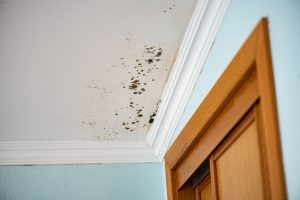 Mold growth is a common issue in many homes, and one that can cause a variety of medical problems. Many of the potential physical responses to mold exposure, such as a stuffy nose, sneezing, and red, itchy eyes, may occur more strongly in people who are allergic to mold or who have asthma. In some cases, severe reactions such as fever or shortness of breath can occur.
Mold growth is a common issue in many homes, and one that can cause a variety of medical problems. Many of the potential physical responses to mold exposure, such as a stuffy nose, sneezing, and red, itchy eyes, may occur more strongly in people who are allergic to mold or who have asthma. In some cases, severe reactions such as fever or shortness of breath can occur.
Mold is typically found in moist areas, such as parts of your home that have experienced flooding or leaks from your roof, windows, or pipes. It’s most likely to grow on wood-based products such as paper or cardboard, as well as some ceiling or floor tiles. Other materials that mold can grow on include:
- Paint
- Drywall
- Carpet
- Fabric
- Insulation
- Upholstery
You can often identify mold by its sight and smell. It often produces a musty odor and appears as one or more patches that are slimy, fuzzy, and/or discolored; these patches grow larger over time. Mold may also grow in places that are not easy to see, such as behind or under furniture, as well as inside pipes or walls. You can look for areas of your home where mold is most likely to grow by looking for signs of water stains or warping due to water damage.
If you notice signs of a mold problem in your home, make sure to identify the source of any water leakage and correct it, as well as discard any items with extensive mold growth or water damage that can’t be thoroughly cleaned and dried. Small areas of mold growth can be cleaned with soap and water, but for large-scale mold problems, it may be best to hire a licensed contractor to correct the issue.
If you are experiencing medical problems due to mold exposure, you can receive treatment at Jamaica Hospital Medical Center’s Ambulatory Care Center. To schedule an appointment, please call (718) 206-7001.
All content of this newsletter is intended for general information purposes only and is not intended or implied to be a substitute for professional medical advice, diagnosis or treatment. Please consult a medical professional before adopting any of the suggestions on this page. You must never disregard professional medical advice or delay seeking medical treatment based upon any content of this newsletter. PROMPTLY CONSULT YOUR PHYSICIAN OR CALL 911 IF YOU BELIEVE YOU HAVE A MEDICAL EMERGENCY.
